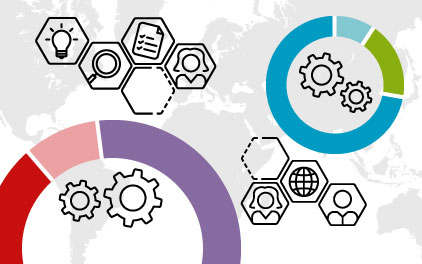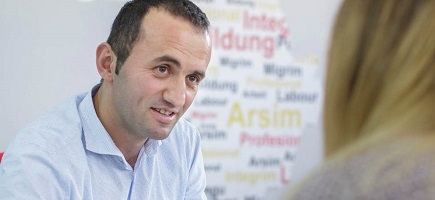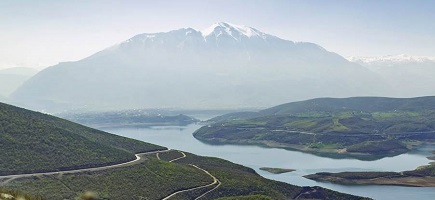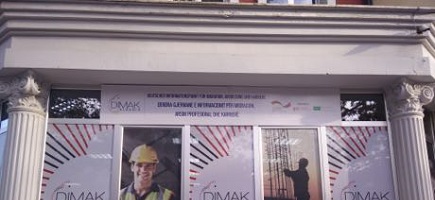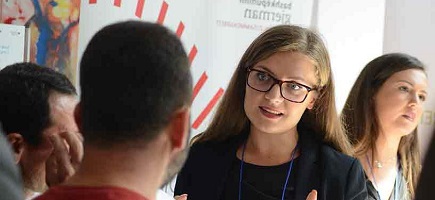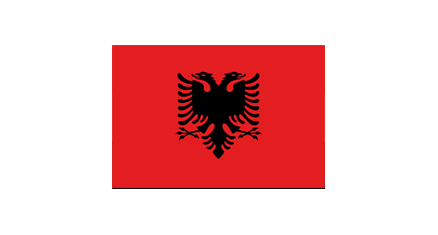
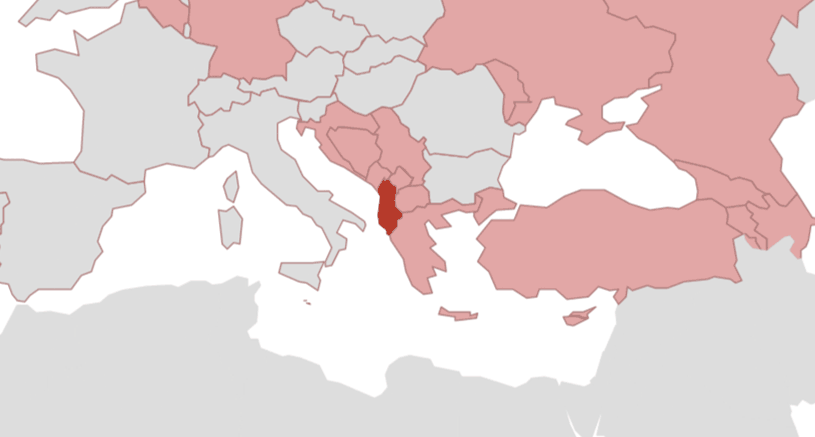
- RURAL DEVELOPMENT
- SUSTAINABLE INFRASTRUCTURE
- GOVERNANCE AND DEMOCRACY
- ENVIRONMENT AND CLIMATE CHANGE
- ECONOMIC DEVELOPMENT AND EMPLOYMENT
Albania
GIZ local staff
National employees: 131
International employees: 17
Integrated experts: 3
(as at: 31.12.2023)
The Deutsche Gesellschaft für Internationale Zusammenarbeit (GIZ) GmbH has been working in Albania since 1988. A country office opened in Tirana in 2008.
Until a few years ago, Albania was the poorest country in Europe. The country has made great progress since then and is now a candidate for accession to the European Union (EU). However, not everyone is benefiting from the economic development: youth unemployment is high and currently stands at 26 per cent. Forty per cent of the population work in agriculture and often have lower incomes than people in urban areas.
Albania is affected by climate change. Scenarios forecast rising temperatures, decreasing precipitation and falling water levels. As the country is dependent on hydropower, climate change is also having an impact on the energy supply. Albania is already formally compliant with EU directives in respect of waste and wastewater. In practice, however, dealing with these remains challenging.
The Government has implemented reforms aimed at modernising the economy and public administration and establishing principles of good governance. Priorities such as a strong justice system, citizen participation, efficient municipal administration and reducing the level of corruption remain important.
In Albania, GIZ mainly operates on behalf of the German Federal Ministry for Economic Cooperation and Development (BMZ) and the EU. Its work focuses on:
- Economic development, training and employment
- Climate and energy
- Good governance
GIZ works together with the private sector, intermediary organisations and the Government to promote economic development, training and employment. It helps companies to broaden their skills and develop innovative models. In agriculture and rural tourism, this contributes to higher incomes and the increased appeal of rural regions. Green and digital skills are increasingly included in general and vocational education. This means that young people are specifically learning skills that are in demand on the labour market.
In the field of climate and energy, GIZ is helping the country to adapt to the effects of climate change. It is promoting climate-friendly urban mobility with the development of public transport systems and creating incentives for footpaths and cycling. GIZ is also advising Albania on diversifying energy generation and harmonising municipal waste and wastewater management with a circular economy.
In the field of good governance, GIZ is helping to make accession negotiations for the EU internal market participatory. In the regions, it is promoting increased foreign trade as well as a crackdown on organised crime. It is also improving municipal services and fostering both youth exchange and media freedom.
